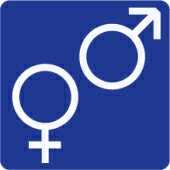- Are You Making This Expensive Thermostat Error This Winter?
- Recognizing the Signs of Hypothyroidism
- 10 Strategies to Overcome Insomnia
- Could Artificial Sweeteners Be Aging the Brain Faster?
- Techniques for Soothing Your Nervous System
- Does the Water in Your House Smell Funny? Here’s Why
- Can a Daily Dose of Apple Cider Vinegar Actually Aid Weight Loss?
- 6 Health Beverages That Can Actually Spike Your Blood Sugar
- Treatment Options for Social Anxiety Disorder
- Understanding the Connection Between Anxiety and Depression
Autism, ADHD Tied to Gender Concerns in Some Kids: Study


The desire to be another gender appears to be more common among children with autism or attention-deficit/hyperactivity disorder (ADHD), according to a new study.
Researchers looked at children aged 6 to 18 and found that gender identity issues were about 7.6 times more common in those with an autism spectrum disorder and 6.6 times more common in those with ADHD than in those with neither of the disorders.
The study also found that youngsters who wanted to be another gender (known as gender variance) had higher levels of anxiety and depression symptoms. But kids with autism had lower levels of such symptoms than kids with ADHD, possibly because they’re not aware that many people have a negative view of gender variance, the researchers suggested.
The study, published in the March online edition of the journal Archives of Sexual Behavior, is the first to document the overlap between gender variance and ADHD and autism, according to a journal news release.
“In ADHD, difficulties inhibiting impulses are central to the disorder and could result in difficulty keeping gender impulses under wraps in spite of internal and external pressures against cross-gender expression,” study leader John Strang, of the Children’s National Medical Center in Washington, D.C., said in the news release.
“Children and adolescents with autism spectrum disorders may be less aware of the social restrictions against expressions of gender variance and therefore less likely to avoid expressing these inclinations,” Strang said.
Strang noted that diagnosis, coping and adapting to gender variance is often difficult for children and families. That’s even more challenging if children also have disorders such as autism and ADHD.
Although the study showed an association between gender variance and autism and ADHD, it did not prove a cause-and-effect link.
More information
The Human Rights Campaign has more about gender variance in children.
Source: HealthDay
Copyright © 2026 HealthDay. All rights reserved.










